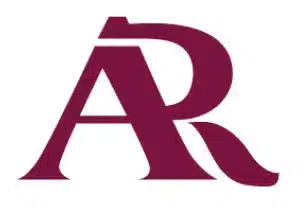Cocaine Overdose: Know the Signs to Save a Life

Cocaine Addiction Causes
Table of Contents
What is Cocaine?
But there is a reason this drug is now illegal. In 2014, about 913,000 Americans met the Diagnostic and Statistical Manual of Mental Disorders criteria for dependence or abuse of cocaine. Research from the 2011 Drug Abuse Warning Network (DAWN) report showed that cocaine was involved in 505,224 of the nearly 1.3 million visits to emergency departments for drug misuse. This means that over one in three drug misuse or abuse-related emergency department visits — a whopping 40 percent — involved cocaine.1
Cocaine Addiction Symptoms
If you suspect someone you know may be addicted to cocaine, a few cocaine addiction symptoms are to look out for. Symptoms of cocaine use include:- An upbeat and overly energetic attitude
- Sensitivity to light, touch, or sound
- Restlessness
- Irritability
- Paranoia
Common Signs of Cocaine Overdose
Considering how common cocaine use is and how many people end up needing medical treatment from using the drug, it’s crucial to recognize the signs of a cocaine overdose. If symptoms are not treated in time, overdose can be deadly.
If you suspect you or someone you know has overdosed, the first thing to do is call 911.
Why is Cocaine Overdose on the Rise?
Fentanyl-Laced Cocaine
What is the Brain Reward System?
When people who are addicted to a substance try to stop using the substance, the sudden lack of dopamine can be challenging to deal with, sometimes leading to severe cocaine withdrawal symptoms.
Cocaine Overdose Treatment

Medications for a Cocaine Overdose
- Benzodiazepines. These are anti-anxiety medicines, such as Lorazepam, used to manage the psychological signs of cocaine overdose like anxiety, agitation, and panic.
- Non-Dihydropyridine Calcium Channel Blockers. These medications are given to lower blood pressure. An example of a non-dihydropyridine calcium channel blocker is Diltiazem.
- Nitroglycerin and Nitroprusside. These medications can also help lower high blood pressure; however, they come with the risk of causing reflex tachycardia.
- Antipsychotics. These medications can be used to treat symptoms like delirium and hallucinations. An example of an antipsychotic that may treat cocaine overdose is haloperidol, which is often used in conjunction with benzodiazepines to treat multiple psychological symptoms.
Detox, Therapy, and Inpatient/Outpatient Care
Resources
- https://www.drugabuse.gov/publications/research-reports/cocaine/what-scope-cocaine-use-in-united-states
- https://www.webmd.com/connect-to-care/addiction-treatment-recovery/cocaine/know-the-signs-of-cocaine-overdose
- https://www.webmd.com/connect-to-care/addiction-treatment-recovery/cocaine/know-the-signs-of-cocaine-overdose
- https://www.npr.org/2021/07/05/1013203805/party-drugs-are-being-increasingly-laced-with-fentanyl
- https://www.npr.org/sections/health-shots/2021/04/22/989833102/overdose-deaths-surged-in-pandemic-as-more-drugs-were-laced-with-fentanyl
- https://www.ncbi.nlm.nih.gov/books/NBK430976/















